Critérium du Dauphiné 2022 route: Every stage revealed for the pre-Tour de France race
Two summit finishes awaits the peloton for the 74th edition of the French eight-stage race

The latest race content, interviews, features, reviews and expert buying guides, direct to your inbox!
You are now subscribed
Your newsletter sign-up was successful
The route for the 2022 edition of the Critérium du Dauphiné features two mountain stages, five hilly days and an individual time trial.
Starting on June 5 and running until June 12, the 74th edition of the eight-stage race includes two summit finishes, one of which comes on the final day.
Commonly used as a warm up for the Tour de France, the Dauphiné will begin in La Voulte-sur-Rhône of the Rhône-Alpes region of south-eastern France. Three hilly days will favour punchy riders in the opening stages of the race, with a 31.9km time trial from Montbrison to La Bâtie d'Urfé taking place on the fourth day, signalling the halfway point.
From there, each day will get progressively more difficult, as the peloton reaches the mountain stages in the Alps on the seventh stage. A summit finish on the final day up Plateau de Solaison will conclude the race, crowning the winner of the 2022 Critérium du Dauphiné.
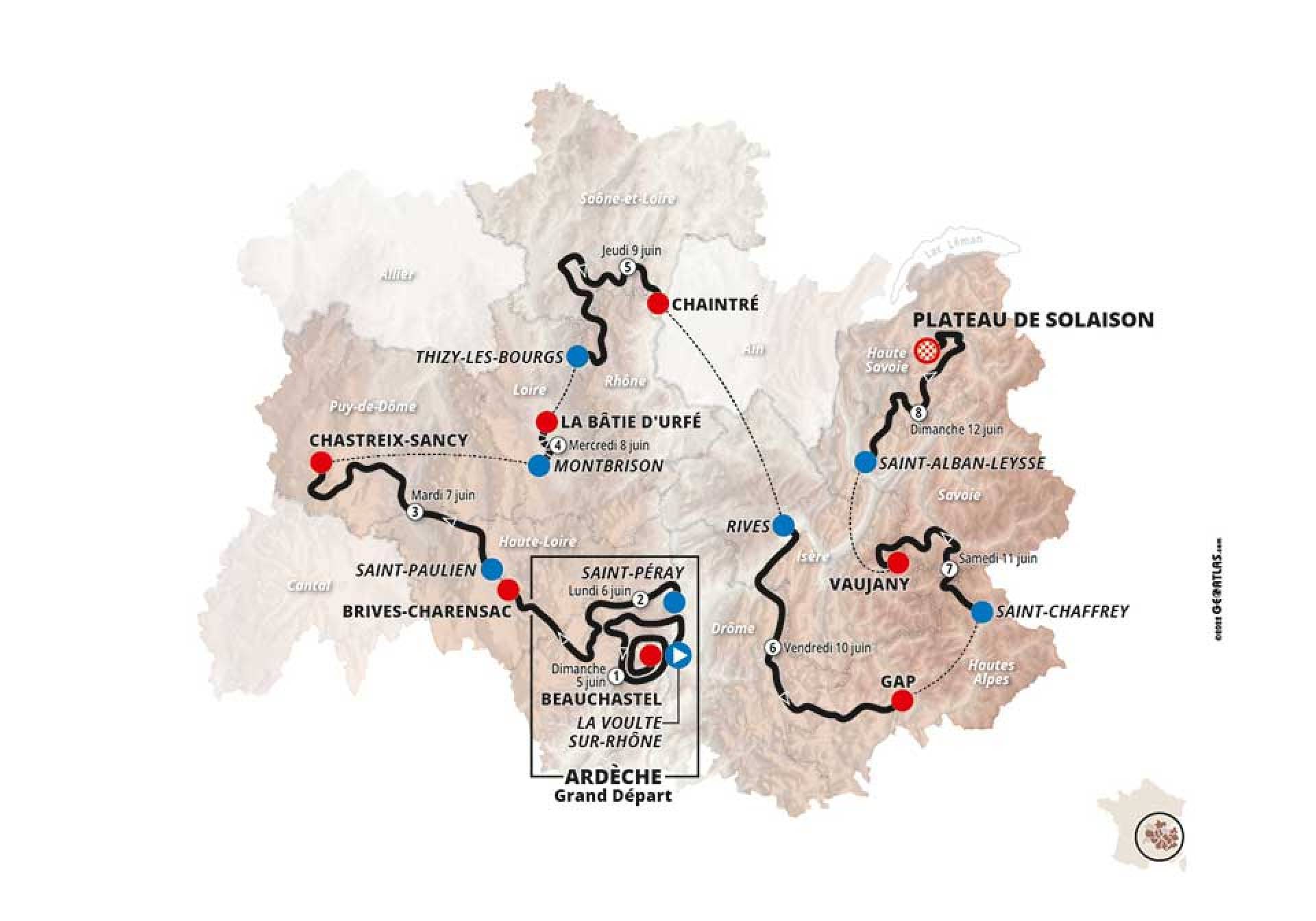
Critérium du Dauphiné 2022 route
| Stage one, Sunday 5 June | La Voulte-sur-Rhône to Beauchastel | 192km hilly |
| Stage two, Monday 6 June | Saint-Péray to Brives-Charensac | 170km hilly |
| Stage three, Tuesday 7 June | Saint-Paulien to Chastreix-Sancy | 169km hilly |
| Stage four, Wednesday 8 June | Montbrison to La Bâtie d'Urfé | 31.9km ITT |
| Stage five, Thursday 9 June | Thizy-les-Bourgs to Chaintré | 162.5km hilly |
| Stage six, Friday 10 June | Rives to Gap | 196.5km hilly |
| Stage seven, Saturday 11 June | Saint-Chaffrey to Vaujany | 135km mountain |
| Stage eight, Sunday 12 June | Saint-Alban-Leysse to Plateau de Solaison | 135km mountain |
Critérium du Dauphiné 2022 stages
Stage one, La Voulte-sur-Rhône - Beauchastel, 192km
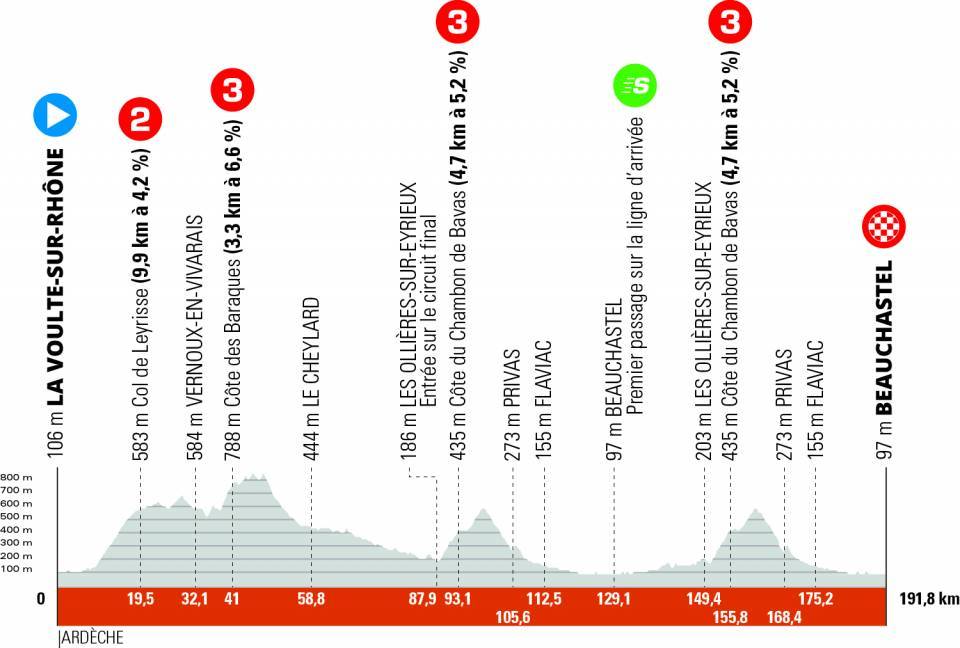
Stage one will see the riders cycle from La Voulte-sur-Rhône to Beauchastel, two towns which are just four kilometres apart. A predominantly hilly stage, the finale is flat along the wide roads as the peloton charges towards the finish at Beauchastel.
Stage two, Saint-Péray - Brives-Charensac, 170km
The latest race content, interviews, features, reviews and expert buying guides, direct to your inbox!
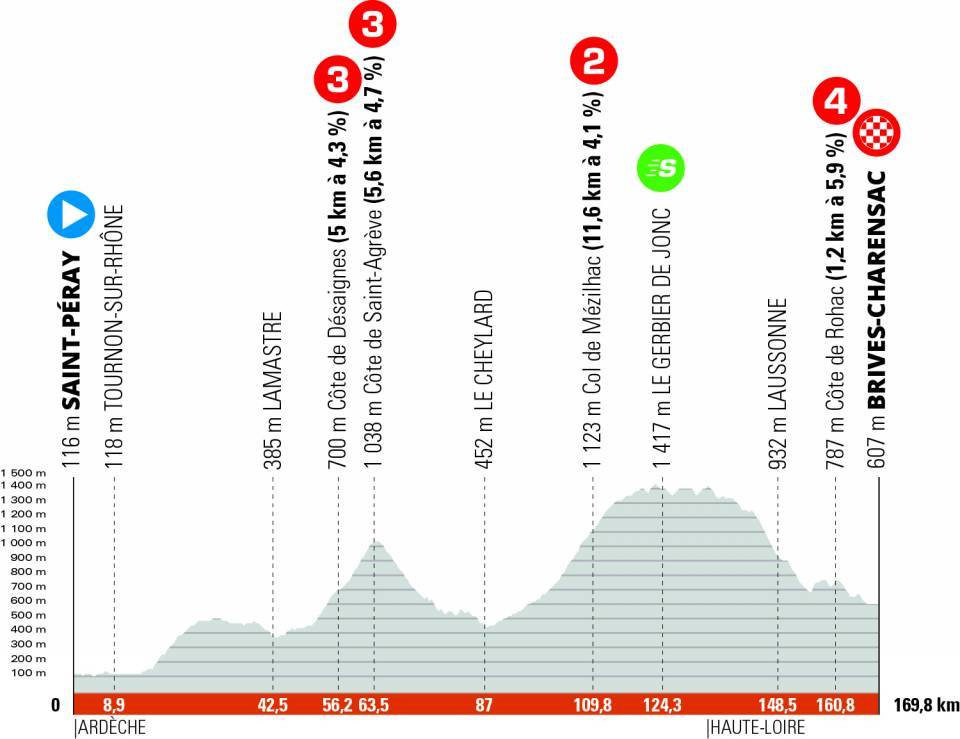
The second stage contains a mixtures of punchy climbs and ascents requiring longer bouts of effort, with four classified climbs offering plenty of opportunities for a breakaway rider to score maximum mountains classification points. Still classed as a hilly day, stage two also provides plenty of downhill segments for riders to open up their legs.
Stage three, Saint-Paulien - Chastreix-Sancy, 169km
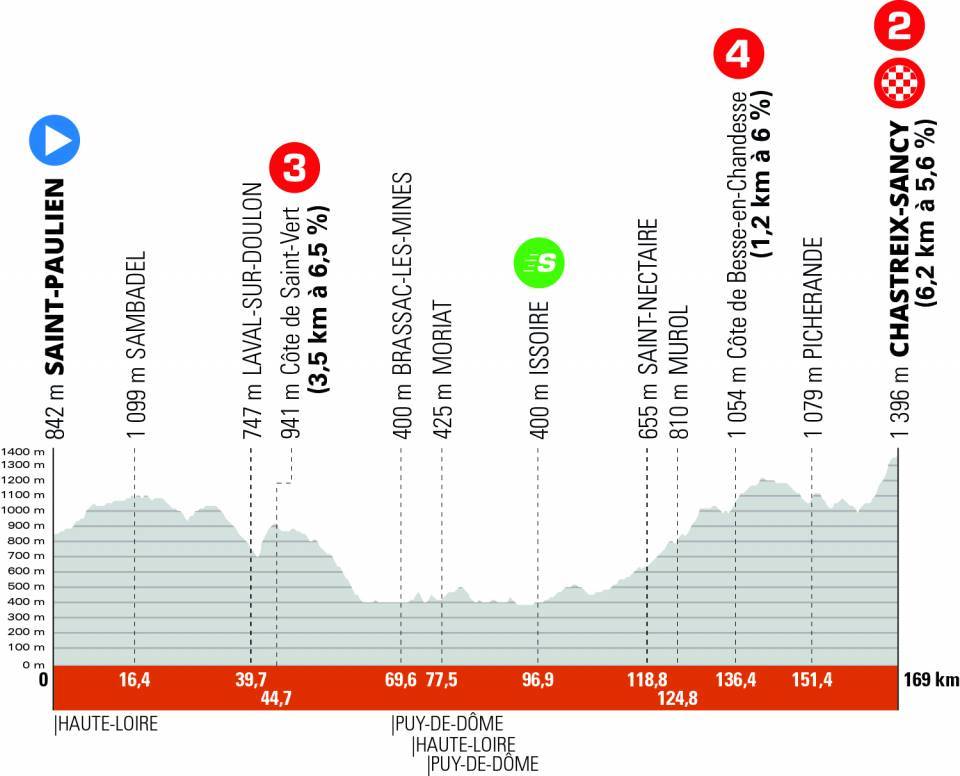
Day three is largely similar to the first two days, but the ending at Chastreix-Sancy is the race's first uphill finish. An elevation gain of 2,700 metres will certainly tax the riders, who won't have a rest day offering any chance at recovery.
Stage four, Montbrison - La Bâtie d'Urfé, 31.9km ITT
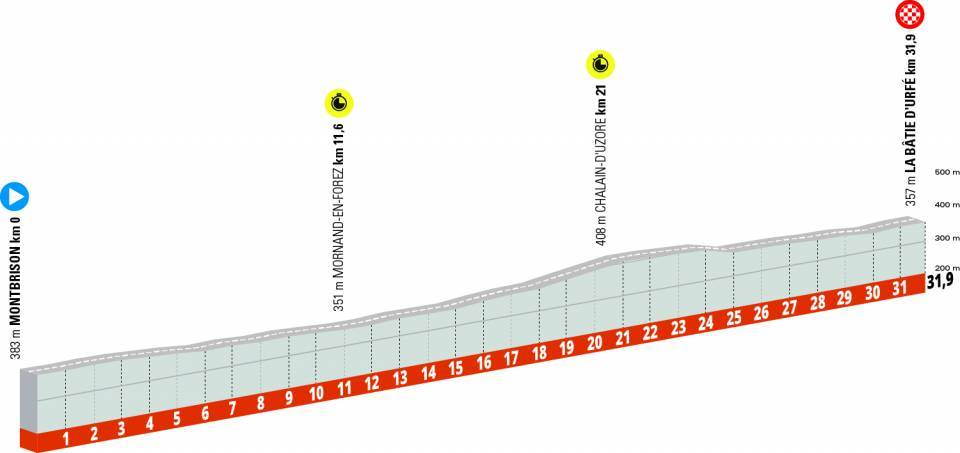
Covering over 30km, the course for the individual time trial is largely flat and only requires a few technical turns. The terrain will certainly be a welcome addition in the race for everyone, as the riders reach the halfway point of the Critérium du Dauphiné once they cross the line in La Bâtie d'Urfé.
Stage five, Thizy-les-Bourgs - Chaintré, 162.5km
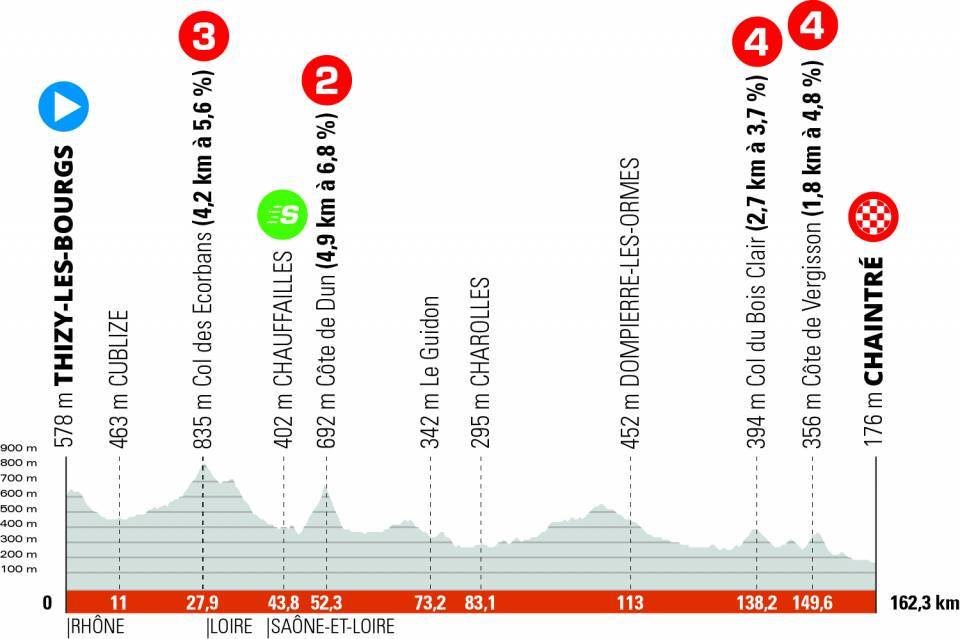
A punchy day awaits on stage five, with lots of short, sharp climbs the order of play. With the final 15km either downhill or flat, there could be an intense sprint to the line for the leading group.
Stage six, Rives to Gap, 196.5km
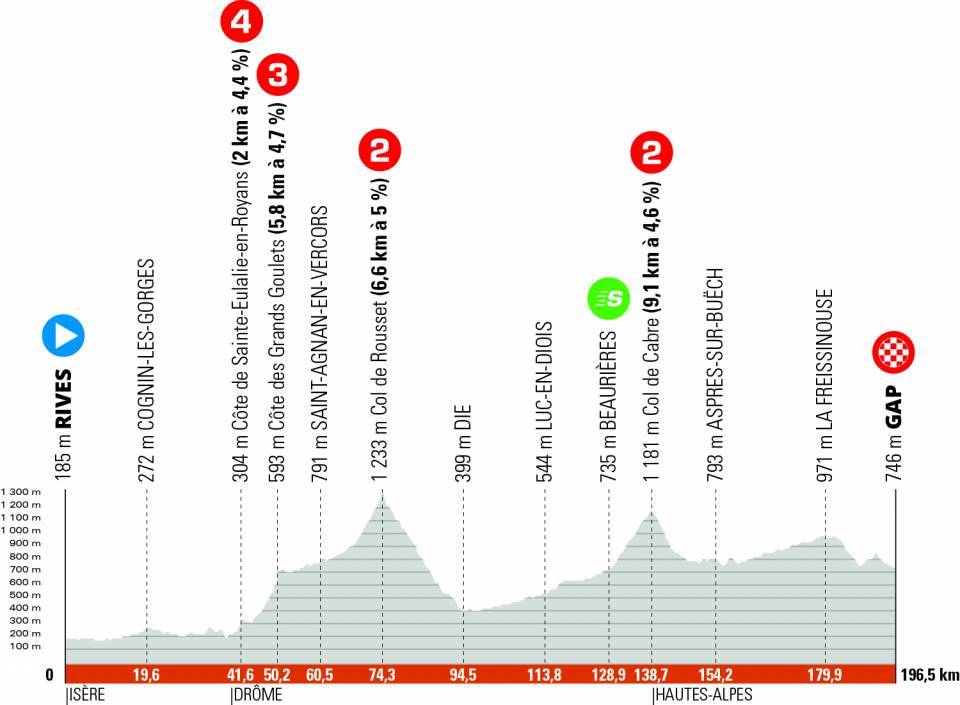
Stage six is the longest day of this year's race, and is certainly by no means an easy task. Classed as a hilly stage, there are mountainous characteristics of the day as the riders are prepared for the final two days in the Alps. The peloton will face four categorised climbs during the sixth stage, with Gap featuring as a finish in three Tour de France stages of the last decade - each producing a solo victory.
Stage seven, Saint-Chaffrey - Vaujany, 135km
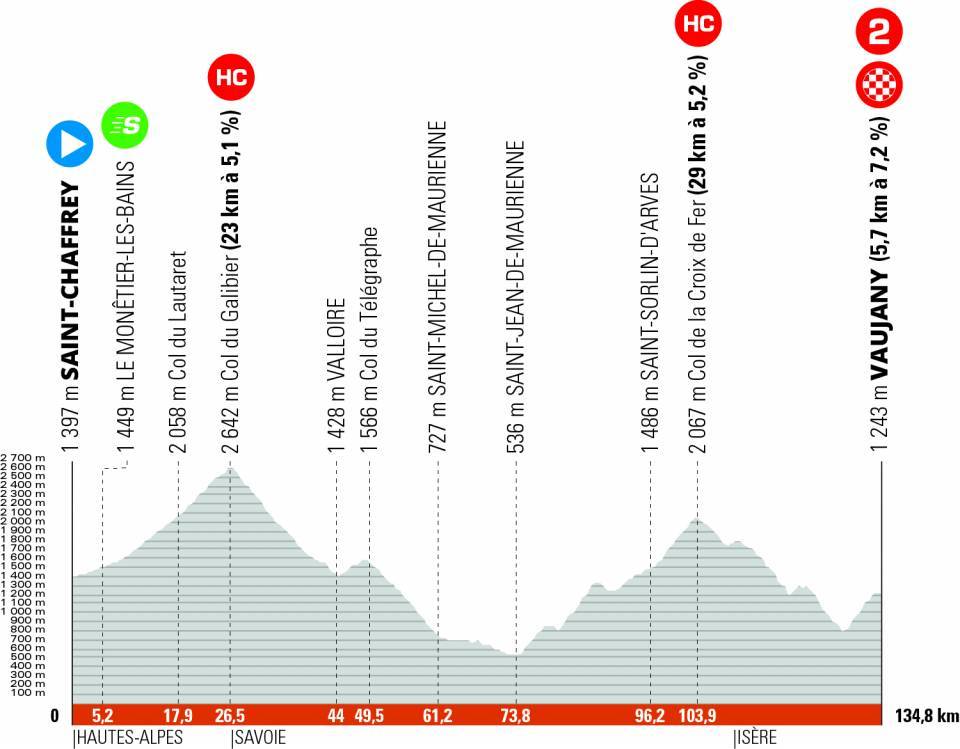
The first mountain stage of this year's Critérium du Dauphiné, stage seven immediately starts with climbing, towards the Col du Galibier. Representing 23km of climbing at 5.1%, this is a tough way to start the stage. What follows for the next 50km is a descent, though, before heading back up the Alps, with the Col de la Croix de Fer climb. At 29km long and 5.2% average gradient, this is a gruelling climb. After a mixture of descending and small climbs, the stage finishes with a 4km climb at a 9.5% gradient, which subsequently levels off in the final kilometre towards the line.
Stage eight, Saint-Alban-Leysse - Plateau de Solaison, 139km
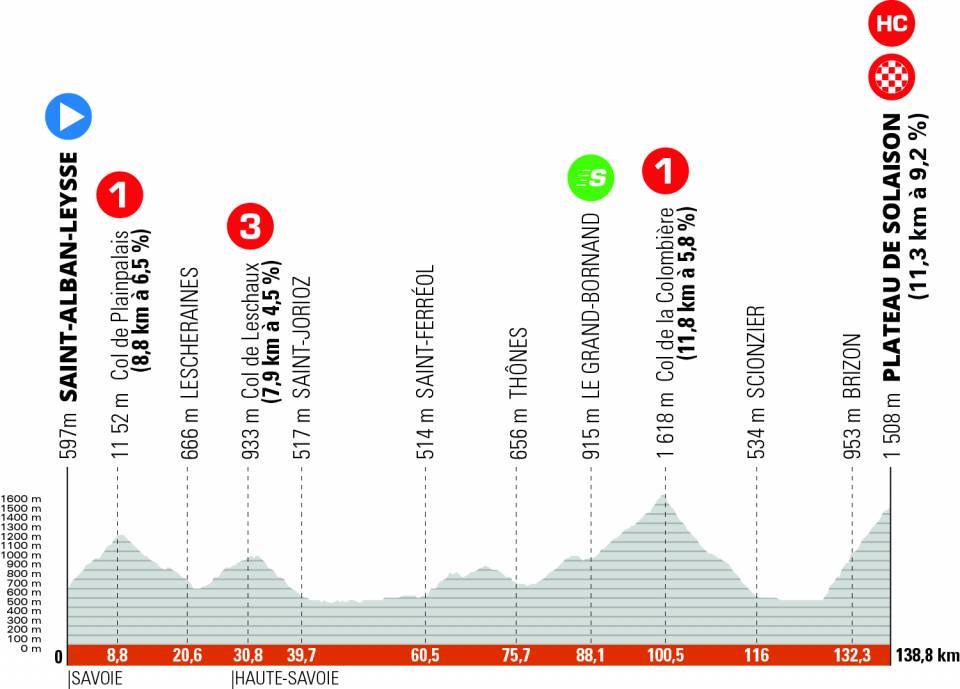
The final stage of the race will take in three intermediate climbs and conclude on Plateau de Solaison, an 11.3km climb at an average gradient of 9.2%. Consequently, there will still be plenty of opportunities for the GC contenders to take the victory for themselves with a perfectly executed breakaway.
With multiple other climbs to contend with throughout this stage as well, the Critérium du Dauphiné will likely still be wide open heading into the finale. Expect plenty of attacks from a number of different riders.
Ryan is a staff writer for Cycling Weekly, having joined the team in September 2021. He first joined Future in December 2020, working across FourFourTwo, Golf Monthly, Rugby World and Advnture's websites, before making his way to cycling. After graduating from Cardiff University with a degree in Journalism and Communications, Ryan earned a NCTJ qualification to further develop as a writer.